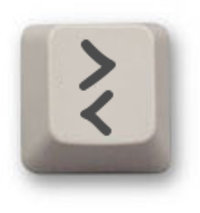
Using expect-lite as a TCL Library
expect-lite can now can run in two modes: standalone, and library-mode. In library-mode expect-lite be used within a TCL (Tool Command Language) program.What this means is that expect-lite can be called programmatically from TCL, allowing the integration of the ease of expect-lite scripting with a more complex TCL-based regression system. An example TCL program, test_el_lib.tcl, using library-mode is included in the tarball.
In keeping with the principle of 'keeping it simple', the goal is allow expect-lite scripts to be used unchanged, or with minimal changes, in a native TCL environment. Important differences from standalone mode are described below.
The expect-lite library seeks to leverage the ease of expect-lite scripting with easy integration into a more complex TCL environment.
Applications Programmers Interface (API)
As part of playing well with other TCL software, a majority of expect-lite has been encapsulated in a TCL namespace, expectlite (TCL does not permit dash in a namespace name). This prevents procedure- (or functions) and variable-name collisions with other TCL code.The API includes the following functions, listed in typical order of use:
- expectlite::_el_init_library
- expectlite::_el_import_session_ids
- expectlite::_el_import_const
- expectlite::_el_buffer
- expectlite::_el_exec_script
Details & examples of the API
Included in the expect-lite tarball is the file test_el_lib.tcl. The example program, is a hybrid script, part TCL, and part expect-lite. The API functions are listed below in more detail, and are listed without the namespace name: expectlite for brevity._el_init_library
Used to initialize the expect-lite library, loads the expect library, and optionally can take a list of expect-lite constants (read-only variables) as name value pairs in the form of var=value, and expect-lite directives.Example:
_el_init_library "*EXP_INFO IP=10.5.5.5 *DEBUG"
_el_import_session_ids
The TCL program may have previously created expect sessions which would be used in the expect-lite script. Session names are imported into the expect-lite *FORK sessions, and the expect-lite script will have access to use the session names defined by the program.Since TCL can not pass arrays, the array of sessions is passed as a list (via [array get session]).
Example:
# create spawn sessions and set prompt to identify the session
spawn bash
send "export PS1='0\$ '\n"
set session(default) $spawn_id
spawn bash
send "export PS1='1\$ '\n"
set session(dut1) $spawn_id
_el_import_session_ids [array get session]
_el_import_const
As mentioned earlier, it is possible to pass expect-lite constants and directives via _el_init_library call. However that can only be called once. It may be more desirable to create a loop where TCL variables are imported into expect-lite. The _el_import_const function that does this can be called many times.Example:
_el_import_const "DUT=mydut *NOFAIL"
_el_import_const "DUT2=thatdut "
_el_buffer
This function is used to read a file into expect-lite's private command
buffer space. In the included example test_el_lib.tcl, the TCL file itself is
read into _el_buffer. Since any line that does not begin with
expect-lite's punctuation characters is ignored, all the TCL in the
test program will be ignored.This function returns a pointer to the private buffer space. This must be passed to _el_exec_script for execution.
Example:
# read this file as expect-lite script, and return pointer to buffer
set cmd_file $argv0
set cmd_list_ptr [_el_buffer $cmd_file]
_el_exec_script
Having prepared the library with the necessary information, this function is the core of expect-lite. It interprets the expect-lite punctuation commands (such as '>', '<'), as well as dereference expect-lite variables. This function returns the following result codes:- zero (0) if the expect-lite script passes
- one (1) if the expect-lite script fails
- two (2) if the result is unknown (usually abnormal end of the script).
# call el script exec
set RESULT [ _el_script_exec "" $cmd_list_ptr ]
# Print result of test
switch $RESULT {
0 { puts "\nTest Passed" }
1 { puts "\nTest Failed" }
2 { puts "\nTest Abend" }
}
Changes in behaviour when running expect-lite as a library
The thinking is that when running expect-lite as a Library (aka library mode), one would not be debugging the expect-lite script itself, but rather one's focused on the integration of the program into the TCL environment. Therefore the following functionality is changed compared to how expect-lite runs in standalone mode.- *INTERACT is be ignored in library mode
- *TCL is a method
which is ignored during normal expect-lite operation, but in library
mode, it enables the calling of native TCL functions from within the
embedded expect-lite script. Notes:
- *TCL is still line oriented, and should only be used for one line TCL commands, or calls to TCL functions
- *TCL has no protection, bad TCL syntax will crash the TCL program
- expect-lite timeouts (@number) will not occur on a *TCL
line
- ~include_file is no longer ignored in Library mode (as of v4.6.2). Use *NOINCLUDE to retain v4.1.0 behaviour
